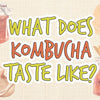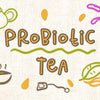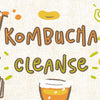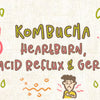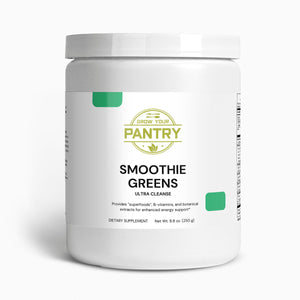Kombucha And Sugar: A Match Made In Heaven Or A Health Disaster?
The sweetness in kombucha tea comes from the sugar that is added to the freshly brewed tea before it gets fermented.
Not Much Time? Skip To What You'd Like To Learn...
-
Average Amount Of Sugar In Kombucha
-
Why Is There Sugar In Kombucha?
-
Types Of Sugar
-
Is Kombucha Really That Healthy With So Much Sugar?
-
Sugar Content By Brand (8oz/227ml)
-
Can You Get Sugar Free Kombucha
-
Kombucha and Ketogenic Diets
-
Kombucha and Diabetes
-
Homebrewed vs. Store-Bought
-
Low Sugar Kombucha
Average Amount Of Sugar In Kombucha

After fermentation, about 2 to 6g of sugar remains in every 8 oz (227ml) of kombucha. This does vary from brand to brand, and homebrewed. A similar serving before fermentation contained around 24g of sugar. During the process, almost 80% of the sugar is broken down.
Calories In Kombucha
On average, an 8 oz glass of homebrewed kombucha contains approximately 34 calories. The significant portion being the 2 to 6g of sugar, which produces 29 calories, and the remaining is by less than 1g of fat.
Why Is There Sugar In Kombucha?

Sugar is a necessary ingredient when it comes to brewing kombucha. The ordinary sugar extracted from sugar cane and sugar beet contain sucrose, which is a crystalline carbohydrate. The yeasts feed on the sucrose, breaking it down into ethanol and carbon dioxide. The carbon dioxide gives kombucha its effervescence.
Role / Science Behind Brewing Kombucha With Added Sugar
Without sugar, the brew wouldn't develop as the bacteria needs the ethanol produced by the yeast. As a result, the SCOBY wouldn't grow, and the kombucha would lack its health benefits, including all the probiotics, amino acids, and trace vitamins.
To get a better understanding of how sugar is broken down during fermentation, we have to look into its constituents. Crystalline sugar is made of sucrose, which is a disaccharide carbohydrate. This means that it's a complex molecule made of two simple sugars. In this case, sucrose extracted from sugar cane contains glucose and fructose in a 1:2 ratio to form one molecule of sucrose.
During fermentation, the sucrose is broken down into fructose and glucose, which is oxidized by the yeast. This produces alcohol and carbon dioxide gas.
How To Measure The Sugar Level
The most precise way to find out just how much sugar is in kombucha is by using a hydrometer. Hydrometers are not only easy to use but also are time effective. Dip it into a vial of kombucha, and it will indicate the concentration of sugar in the drink.
While a hydrometer is a rather pricey gadget, it is a good investment, especially if you are intending on brewing kombucha regularly.
Types Of Sugar

What types of sugar can be used for brewing kombucha tea?
While traditionally kombucha has always been brewed using processed sugar that's extracted from sugar canes, other sources of sugar can also work. This is because the primary molecule in sugar is sucrose, and it's broken down easily by the yeast. As a result, any other source of sucrose can also be used to sweeten the tea before fermentation.
Type Of Sugar |
Flavor It Gives To Kombucha |
Amount To Add To 2L Tea Brew |
Plain white cane sugar |
Sweet with a hint of sourness |
200g |
Brown sugar |
Rich sweet taste with a slightly darker flavor |
200g |
Honey |
Light, refreshing flavor |
176g |
Maple syrup |
Sweet flavor |
126g |
Blackstrap molasses |
Slightly sour |
380g |
Evaporated sugar cane juice |
Sweet rich taste |
196g |
Plain White Cane Sugar
This is the most commonly used sugar variety, as it is well suited for fermentation. The SCOBY culture consumes this type much faster as it does not contain additional particles. It's recommended to avoid GMO beet sugar.
Pros:
-
It ferments much faster, making it great for first-time kombucha brewing.
Cons:
-
There are concerns regarding trace toxins that are left over after the sugar processing and bleaching process.
Brown Sugar
Brown sugar is also extracted from sugar cane. The only difference is that it does not undergo the bleaching and additional processes that are required to turn the sugar crystals white.
Brown sugar is harder for the culture to breakdown compared to white sugar and can result in changed flavor.
Pros:
-
Much healthier than white sugar as it does not contain trace elements from the bleaching process.
Cons:
-
It can change the flavor of the kombucha due to the additional particles.
Sugar
 Kombucha is often drank for its health benefits so choosing the highest quality ingredients is paramount.
Kombucha is often drank for its health benefits so choosing the highest quality ingredients is paramount.
Raw, USDA Organic, Non-GMO Cane Sugar, is the recommend sugar of choice for your ferment.
Kirkland's Organic Cane Sugar is what we would recommend.
[Check The Latest Price On Amazon By Clicking
This Link]
Honey
Honey contains around 75 percent sugar content sourced from nectar. As a result, the concentration of glucose and fructose will vary depending on the source of the nectar.
On average, honey contains 50% fructose and 50% glucose. During the tea preparation, use 0.88g of honey for every 1g of sugar that you would have used. Honey contains quite a high amount of calories with a 100g serving containing as much as 304 kilocalories.
Pros:
-
It contains added minerals that are essential for a robust immune system.
-
Honey is all-natural and does not require any chemical processing before use.
Cons:
-
You cannot use raw honey as it contains a colony of bacteria that could interfere with the SCOBY.
Our Recommended Raw Honey

Whilst we would always suggest locally sourced organic raw hone if you're looking to order it online this is what we would recommend: Jun Kombucha uses a Jun SCOBY and Raw Honey to create a unique blend. Choosing the right honey can be confusing.
Nature Nate's Raw And Unfiltered Honey which comes from Texas.
[Check The Latest Price On Amazon By Clicking
This Link]
Molasses
Molasses are leftover from sugar cane processing. Molasses can be used as an alternative to cane sugar. Not only is it rich in vital minerals such as iron, calcium, and potassium, it also matches well with other flavors such as winter spices.
While molasses can taste overly sweet and smoky, it contains a similar amount of sucrose to local sugar. Therefore, during the tea preparation, you should use molasses in the ratio of 1:1 to substitute the sugar.
Due to its dense nature, molasses tends to take a bit longer to ferment as the culture has to break down all the other components to get to the sucrose. After fermentation, the additional minerals also give it a slightly sour flavor hence the need to combine it with another flavor.
Pros:
-
It contains additional minerals that are not present in processed sugar.
-
While it's dense, it only contains 75% of sugar, making it a great low-calorie alternative.
Cons:
-
Kombucha prepared using molasses tends to get sour quickly, thus requiring additional flavors to make it less dominant.
Maple Syrup
Maple syrup is extracted from maple trees sap, and it's claimed to provide not only natural sweetness but also necessary minerals. The sap is boiled until it becomes a thick syrup, which is then filtered to remove any solid impurities.
Maple syrup is rich in calcium, manganese, zinc, potassium, and iron. Fermenting maple syrup reduces the sugar in it, making it much healthier than the original syrup. Due to its high sugar content, you should only use about 1/2 to 2/3 cup (158g to 211g) of maple syrup per gallon (4.5L) of tea.
Pros:
-
It requires very minimal amounts to be used as it's overly sugary.
Cons:
-
Be on the lookout for 100% maple syrup as quite a large number of brands rely on added corn syrup and processed sugar to make artificial maple syrup.
Evaporated Cane Juice
Evaporated cane juice is much better for kombucha preparation compared to other sources of sugar mainly since it's extracted from sugar cane. As a result, the sucrose concentration in the liquid is at 80%. This makes it much easier for the culture to breakdown the sugars during fermentation, giving you a sweet and slightly earthy drink. The flavor may tend to get sour if left to ferment for too long.
Pros:
-
It contains only natural sugar and does not require any additional processing.
Cons:
-
The final product may end up with a sour flavor if it ferments for too long.
Can you mix the sugars?
Yes, mixing sugars is allowed as it helps generate unique kombucha flavors. Keep in mind when mixing the sugars that the overall ratio of sugar should not exceed the required amount. Otherwise, the yeast will remain dormant.
Is Kombucha Really That Healthy With So Much Sugar?

Overall, the answer is yes; kombucha contains quite a sizeable amount of sugar before fermentation; the sugar reduces significantly during the brewing stage. After consumption, the increased metabolism as a result of consuming it not only burns through this sugar but also from other sources such as stored fat. Make sure to check the labels as some brands add extra sugar after fermentation!
The question of whether kombucha's probiotics, caffeine, and vitamin benefits can outweigh the hazards of consuming the 2-6g of sugar can be rather complicated to answer. The best way to approach this is by looking at the health benefits and risks associated with sugar consumption as an individual nutrient separate from the kombucha.
Benefits:
It's a readily available source of energy
After consumption, the sugars in kombucha are actively broken down from sucrose to glucose, which helps increase sugar level, thus providing the required energy.
Improved levels of alertness
The same way sugar induces hyperactive kids into sugar rush is the same way it elevates levels of alertness. After glucose is absorbed, its increased concentration means that the brain will have access to all the fuel it needs.
Mood improvement
Consumption of sugar has been linked with positive mood changes. Carbs activate pleasure centers within the brain with increased dopamine production.
Risks:
Weight gain
When consumed in large amounts, sugar can accumulate in the blood triggering its conversion into fat for storage. As the body builds up the number of fatty cells, one tends to gain weight.
Increased risk of heart complications
Excess consumption of sugar has been linked with an increased risk of heart disease. The excess sugar has a compounding effect whereby it leads to obesity, inflammation, and high blood pressure all increase the probability of developing heart complications.
Increased chances of developing type 2 diabetes
Consumption of excess sugar can lead to obesity and increased blood sugar, which over time, leads to insulin resistance, thus triggering off type 2 diabetes.
Sugar Content By Brand (8oz)

Brew Dr. Kombucha |
7g |
Humm Kombucha blueberry mint |
8g |
GT Organic raw trilogy kombucha |
6g |
Holy kombucha |
8g |
Lion's Heart Kombucha |
4g |
Kevita master brew |
9g |
Kombucha wonder |
14g |
Health-Ade Kombucha |
12g |
Wildcard kombucha |
14g |
Can You Get Sugar Free Kombucha?

Technically speaking, you cannot get sugar free kombucha as sugar is required to feed the culture during fermentation without which there wouldn't be kombucha. However, that doesn't mean that there aren't brands of kombucha that are dedicated to providing low-sugar drinks. The list above gives options that are lower in sugar.
Kombucha and Ketogenic Diets

Ketogenic diets are guided by one simple principle; provide the required growth nutrients with as few carbohydrates as possible. Increased amounts of fat instead supply the energy. When the carbohydrates available reduce, the liver is forced to burn fats, breaking them into ketone bodies and fatty acids.
Ketone bodies act as an alternative source of energy to substitute glucose.
Is kombucha keto?
Some brands of kombucha can be considered keto, especially those with reduced carbohydrate count. When it comes to homebrewed kombucha, you will have to measure the number of carbs in it before deciding if it can fit in with your keto diet. As for store bought kombucha, always check the label. Be wary of any brands that add additional sugar after fermenting.
Kombucha and Diabetes

Living with diabetes requires a serious consideration when it comes to what you eat and drink. While there are two types of diabetes, they both rely on the same aspect of the body failing to maintain a healthy balance of carbohydrate concentration in the blood. Insulin is the chemical responsible for keeping this balance.
Can you consume kombucha if you have diabetes?
This depends on the type of diabetes, therefore, seek professional medical advice before proceeding as each patient's case is different from the other.
When it comes to type 1 diabetes, overconsumption of carbohydrates should be avoided, such as the ones found in kombucha, as this could lead to dangerously high levels of sugar in the blood.
However, type 2 diabetes is caused by insulin resistance forming within the body cells. As a result, the body produces insulin; only it is not enough, or it does not have the required effect to stabilize the sugar levels.
It's been shown that kombucha brewed using green tea contains elements that are helpful in alleviating diabetic symptoms. These include polyphenols. Kombucha also increases the metabolism rate, which helps to burn up the high amounts of carbs to restore balance.
Best brands for diabetics:
Health-Ade kombucha 7g sugar
GT Organic raw kombucha 6g sugar
Homebrewed vs. Store-Bought

To determine the health impact of homebrewed kombucha compared to that of store-bought kombucha, we will have to look beyond just the numbers. This is because every kombucha brand relies on its recipe and will, therefore, have varying amounts of sugar.
However, since you can control the fermentation period when it comes to homebrewed kombucha, you can control the sugar in it. Leave the kombucha brew for longer to reduce to the level of sugar, as more sugar gets broken down.
What to look for in store-bought kombucha:
Sugar content
The amount of sugar in commercially bottled kombucha will vary from one brand to the other. Always go for varieties that indicate how much you should serve and the breakdown of calories in it. We recommend sticking to brands with under 5g of sugar per serving.
Caffeine content
Take note of the caffeine content in store bought kombucha as the amounts vary depending on the ingredients used to brew the kombucha. If you do not want to consume caffeine, there are some low-caffeine kombucha options.
Brewing method used
Some manufacturers rely on the classic fermentation procedure while others implement a 2 stage fermentation process that sees new sugar and flavors added to the fermented kombucha before it gets bottled. For the best weight control stick to single fermentation kombucha brands as they do not add sugar to it after fermentation.
Low Sugar Kombucha

Recipe 1: by Sarah Wilson
The only way to brew kombucha that's sugar-free is by letting it ferment for a more extended period until the yeast has broken all the sugar in the kombucha. While this method does make sense if you must eliminate sugar from your diet due to medical reasons or keto diet, the resulting kombucha is quite sour. This sourness can, however, be dealt with by diluting the kombucha with freshly brewed herbal tea in a 50% ratio before drinking it.
Recipe 2: by Fermenting For Foodies
If you are interested in cutting down your caffeine intake but still want to experience the benefits of kombucha, you can try the honey rooibos kombucha recipe. This relies on pasteurized honey as the source of glucose for the yeast culture and rooibos tea to provide the tannins and flavor. Rooibos tea is a herb that is caffeine-free but has a flavor close to that of black tea leaves. The fermentation process breaks down most of the sucrose in honey, resulting in an almost sugar-free drink.


